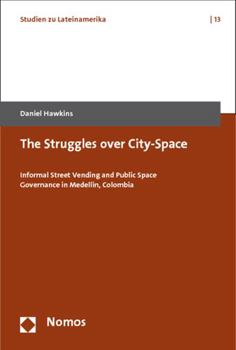The Struggles Over City-Space: Informal Street Vending and Public Space Governance in Medelin, Colombia
The relatively rapid and poorly regulated processes of urbanization in Latin America, linked in Colombia's case to violent processes of rural displacement, have left behind them gaping structures of socio-spatial segregation. The historical class dimensions of such an inequitable development process can be well illustrated via an analysis of the marked differences between conceptions, uses and representations of space in the inner-city of Medellin. Looking into the struggles over public space use in this city, caught between conflicting logics - on one hand, politicians who have sort to "order" space in a lineal fashion ideal for consumption and capital investment; criminal elements that look to impose their rule on space via coercion, extortion and contraband activity; and, lastly, the mass population of informal street vendors who use space "actively" to subvert their socio-economic and political exclusion from their city - these differences become pinnacle examples of the multifaceted nature of city development and the continuous class-based struggles over space in the city. This book, adopting a multiple theoretical and conceptual lens, grounded in critical geographical historical materialism and informal forms of power, traces the evolution of this inner-city space-based conflict, uncovering many aspects of what is removed from the untrained so-called expert's eye.
Format:Paperback
Language:English
ISBN:3832967001
ISBN13:9783832967000
Release Date:December 2011
Publisher:Nomos Verlagsgesellschaft
Length:328 Pages
Customer Reviews
0 rating





